Were Harry and Meghan right to open up in public? It’s a generation thing
This week Harry and Meghan expressed their emotion like no other royal couple. Your reaction may depend on your generation.
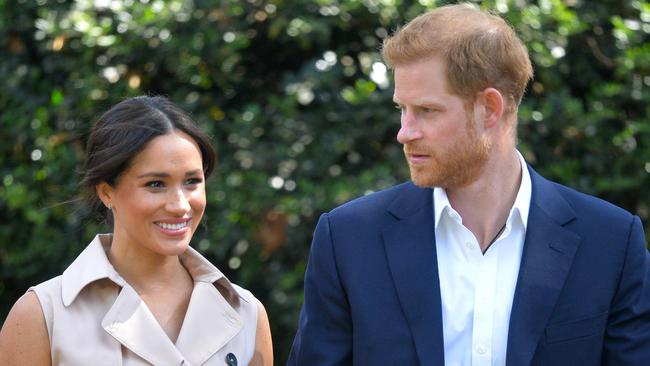
The Duke of Sussex said in the documentary about his recent tour of South Africa with his wife, Meghan, that he and the Duke of Cambridge were on “different paths at the moment”.
Those different paths are in a way an experiment with either brother as control: do you veer towards the traditions of previous generations, in particular their grandmother and our Queen, buckling down with laconic stoicism and duty? Or do you try something new, something that the old find mystifying, if not angering, and the young find important and inspiring: show the hurt and vulnerability of public exposure while still being exposed in public? Do you join generation emote?
Prince Harry revealed that he is still suffering from the mental health problems that dogged his twenties — “it’s constant management” — while Meghan, when asked if dealing with attacks from the press had “really been a struggle” replied, emotionally: “Yes.”
On Monday it was up to sources close to Prince William to say he was “worried” about his brother and to add that there was a view from Buckingham Palace that Harry and Meghan were in a “fragile place”, words that could easily have been said from the same institution a generation before them about the princes’ mother, Diana, Princess of Wales.
While William and Harry, at 37 and 35, are only a couple of years apart, the elder and younger, along with their wives, represent a generational divide. Is it courageous to put up?
MORE: Harry, William ’on different paths’ | William ‘worried’ about Harry, Meghan
Or is it courageous to open up? While William adopts a partly moderated approach of his paternal line of the Firm he has been raised to run, Harry explicitly continues to model Diana.
The Queen is queen of the stiff upper lip. Prince Charles said that even in private his mother was reserved, describing the Queen’s parenting style as “not indifferent so much as detached”. Diana was one of the first of her standing to talk of the costs of this very British repression, sharing a close spiritual kinship with her Californian daughter-in-law. Put in its most negative light: anyone of grandparental age may critique the young for “oversharing”, while those aged 35 and below will judge the British tactic of “stiff upper lip” as almost comically historic and barbaric.
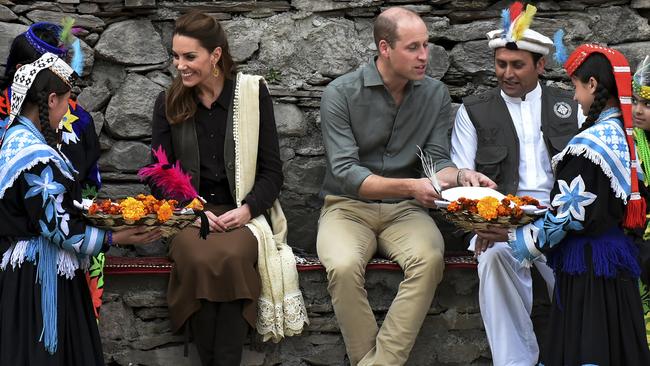
It is a divide more uncrossable than Brexit and has its own uncertainties. First, while it has become common for those in the media and sports to talk about their mental health, it is still vanishingly rare for a leader in a position of power to do so. Younger figures, such as Rio Ferdinand, Adele, Lena Dunham and Emma Stone, have talked about their grief, depression, anxiety and panic attacks, respectively, and relieved its stigma.
But it is really only Antonio Horta-Osorio, the chief executive of Lloyds Banking Group, who has broken the taboo for leaders of organisations to admit to mental health difficulties. It is still hard to imagine a sitting prime minister or president being honest about their mental health without it being condemned as a source of weakness. The Queen draws her authority from silent mystique.
“The Queen is the most public figure, but we know nothing about her emotions,” says Penny Junor, the royal biographer. “Over the years she has lost relatives. They’ve been blown up, they’ve died in accidents. She has lived through all sorts of horrors and domestic crises, but we have never seen a flicker of weakness or emotion from her about her private life. That doesn’t mean she doesn’t hurt when things go wrong, feel depressed or have problems, but she chooses to deal with them in a very private way.”
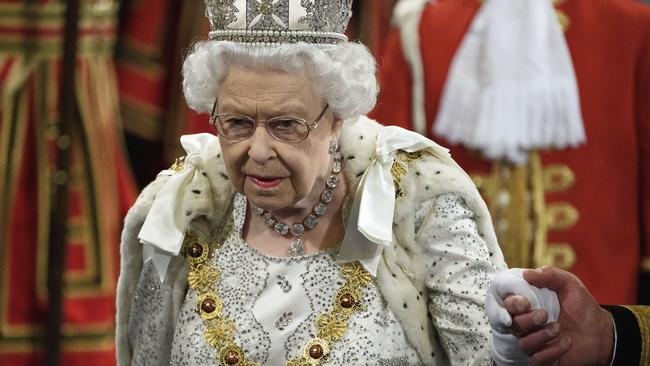
Are we ready, even now, to accept command from someone doing the job without hiding, including from their human frailties and tears?
Second, is it even possible to be a public figure — and many young people on social media will empathise with this — if the public opprobrium that comes with that role is the source of your greatest pain? As many Instagrammers have come to realise, being hurt online and showing that hurt online can turn into a self-lacerating feedback loop.
“I really tried to adopt this British sensibility of a ‘stiff upper lip’,” said the Duchess of Sussex in the ITV documentary, giving the phrase the full force of symbolism, a byword for the British establishment and the Queen.
Her interviewer, Tom Bradby, is a longstanding friend of the couple, not least because of his public admission of destabilising insomnia, applauded by Harry. Bradby murmurs underneath her words that stiff upper lip “has its uses”, but she pushes on. “I tried, I really tried,” she says, with mounting anguish. “But I think what that does internally is probably really damaging.”
The high-water mark of unity between the princes was 2017. In a series of joint appearances for their Heads Together campaign and a joint documentary to mark 20 years since their mother’s death, they spoke in ways that echoed Diana’s Panorama interview in 1995. In her attack on the royal family for being “so distant”, Diana prefigured Meghan’s desire for an active and open public role.
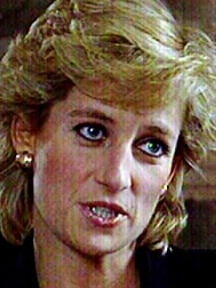

“Maybe I was the first person ever to be in this family who ever had a depression or was ever openly tearful,” Diana said in that interview, which she said gave people a “wonderful new label” that “Diana is unstable, Diana is mentally unbalanced”.
If Diana was the first person in the royal family to talk about crying and sadness, her sons then saw to it that she was no longer alone. In 2017 the guard did not just change at Buckingham Palace; it came down. Since then William has retreated from this level of disclosure, parting ways with his brother, who has pushed it farther. It is interesting to look back and analyse William’s 2017 broadly critical comments on “stiff upper lip": he refuses to condemn it entirely, wants to retain its usefulness.
“If I look at my parents’ generation, there was a lot more stiff upper lip going on,” he said in 2017. “There may be a time and a place for the stiff upper lip, but not at the expense of your health.”
By the autumn of 2017 Harry was engaged to Meghan Markle, and hardened in his position that there was no real time and place for stiff upper lip. Take this contrast. William and his wife, Kate, conducted a tour to Pakistan in parallel to his brother’s tour of South Africa. When a wellwisher told William that they were a “big fan” of Diana he replied, with poignant understatement, that he too was “a big fan”.
Harry has a much more tortured relationship with his grief over his mother, permanently knotted with his blame of the media, a tangle that includes his wife. This weekend he gave a passionate defence of his wife against internal and external pressures. He cites only his mother as a positive role model, not the Windsors. Note his use of the word “despite” in the next sentence: Diana’s values are, in his mind, incompatible with the role.
“My mum taught me a certain set of values that I will always try to uphold, despite the role and the job,” Harry said. “All we need to do is focus on being real, and focus on being the people that we are and standing up for what we believe in. I will not be bullied into playing a game that killed my mum.”
When Harry says that he intends to focus on “being real” he echoes the words of Brene Brown, an American psychological researcher who is one of his wife’s favourite writers. She is an academic expert in “vulnerability”, who broke through with a viral TED talk, which has been viewed more than 44 million times. Brown’s latest book, Dare to Lead, is the culmination of a seven-year study into busting the taboo of leaders showing frailty.
When Meghan guest-edited British Vogue this summer she chose Brown to write a piece, which can’t help but feel highly pertinent, about facing down public criticism. Brown advised against stoicism: “If you develop skin so thick that you start to lose the ability to be hurt, you’re at risk of feeling nothing at all.
“The only foolproof strategy I’ve come up with so far is this: owning our story,” Brown wrote. “Do the world a favour: speak your truth.” It is an approach that chimes with so many younger people. Hattie Brett, the editor of Grazia, says that the magazine’s young female readers came out in sympathy for Harry and Meghan; they “really related” to Meghan, a woman with a successful independent career, who wants to use her platform in the royal family to effect change.
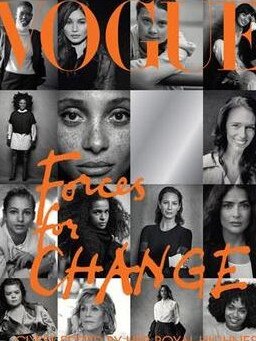
Meanwhile Harry’s courage talking about his mental health, particularly helping men slough off its stigma, was seen as “only a positive”. The stiff upper lip was an anachronism, Brett says, where the tension between duty and mental health for the royals was seen as “desperately sad”.
Jessica Morgan, a 26-year-old writer, says that Meghan’s interview “absolutely broke my heart”. As a black woman, she feels especially close to the duchess’s feelings of rejection.
“She is not just a woman in the royal family, but a black woman,” she says. “That she has come and started to experience what we’ve been experiencing in Britain for the past 26 years, it’s sad. But I’m glad they are speaking out about it. This idea that you’re rich, you don’t get to be sad, is quite disgraceful.”
But Harry and Meghan have something in common: unresolved psychological wounds from parents with a complicated legacy. For Meghan that means her battles with her father, conducted through the media and the subject of her recent lawsuit. For Harry that is protecting his family from the press, figuratively speaking his mother’s killers.
His mother’s death, Harry said a few days ago, is “a wound that festers”. This fight against press intrusion is broadly the subject of his lawsuit.
This means that while Harry and Meghan are determined to be open in public, they also have their own history, which makes it almost impossible for that openness to be without pain. It feels like an unsolvable, hurtful conundrum. Their only true pathfinder in adopting this approach within the royal family is Diana. Hers is a story drenched in sadness.
Her sons have never talked publicly about their mother’s mental health difficulties: that remains a private matter. But by giving the Panorama interview, she was ejected from the royal family, and subsequently struggled to balance the publicity she sought and the persecution she loathed from the press.
William said in the 2017 documentary that when it comes to public openness and the media, “one lesson I’ve learnt is you never let them in too far, because it’s very difficult to get them back out again. You’ve got to maintain a barrier and a boundary, because if you cross it, a lot of pain and problems can come from it.”
Where is the boundary? William sets that boundary at an increasing distance. For Harry and Meghan, meanwhile, sometimes the boundary feels as thin as air, as when they talk about their feelings. Sometimes, when they talk about press criticism, the boundary feels like a prison wall.
The Times



To join the conversation, please log in. Don't have an account? Register
Join the conversation, you are commenting as Logout